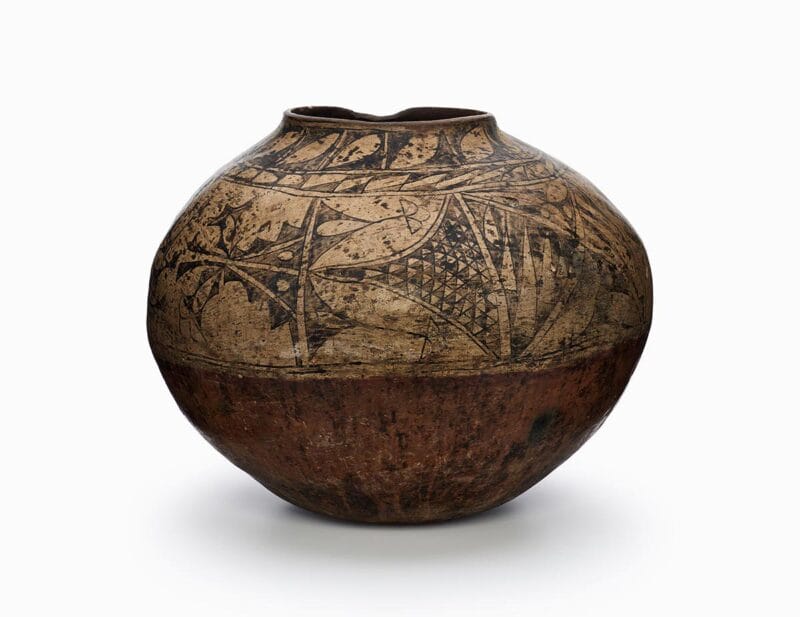





About the Object
This four-color Acoma polychrome jar features white slip with black, red, and orange painted decoration. The neck of this two-banded designed jar consists of attached checkerboard patterns with open triangles outlined with hachured (crosshatched) rain lines and cloud motifs. The body has interchanging panels of black, red, and orange triangles with feather or cloud motifs that hold crisscrossing rain lines.
Additional Information
The Pueblo of Acoma, also known as Haak’u and Sky City, is a sacred Indigenous homeland located in northwest New Mexico. The Pueblo people who call Acoma their home are a modern people with a living culture and tradition that is rooted in their land. Their art forms, such as pottery, are the traditions of their ancestors and are directly tied to their language, dance, and celebrations.
Unknown Artist;
Private Collection, Santa Fe, NM;
[Morning Star Gallery, Santa Fe, NM];
Jan T. and Marica Vilcek Collection, New York, NY, 2005-2019;
Related Objects
You may also be interested in
“Grounded in Clay” on Display at the Saint Louis Art Museum

“Marsden Hartley: Adventurer in the Arts” travels to New Mexico

Vilcek Foundation supports “Grounded in Clay: The Spirit of Pueblo Pottery”










